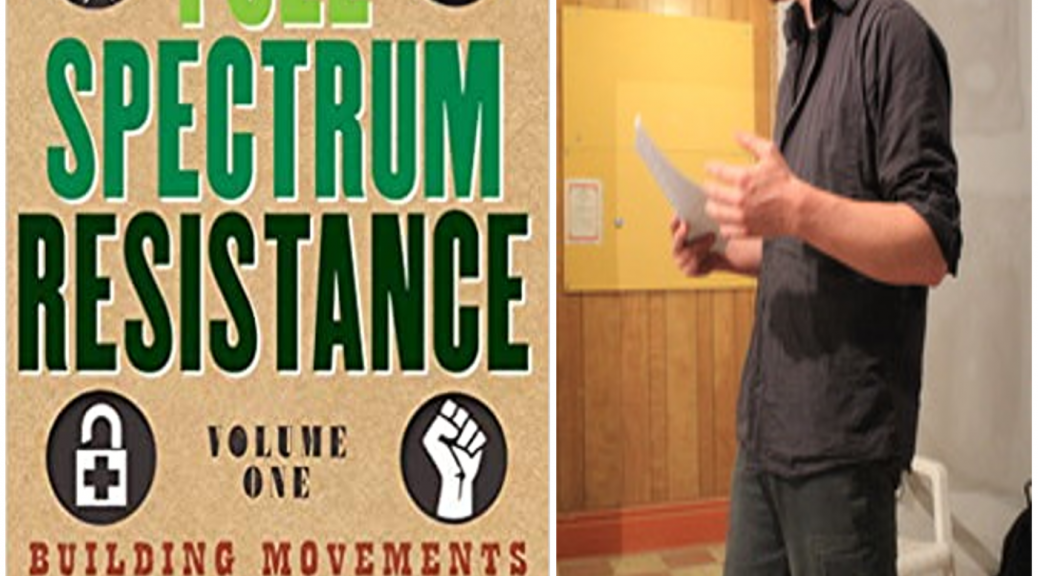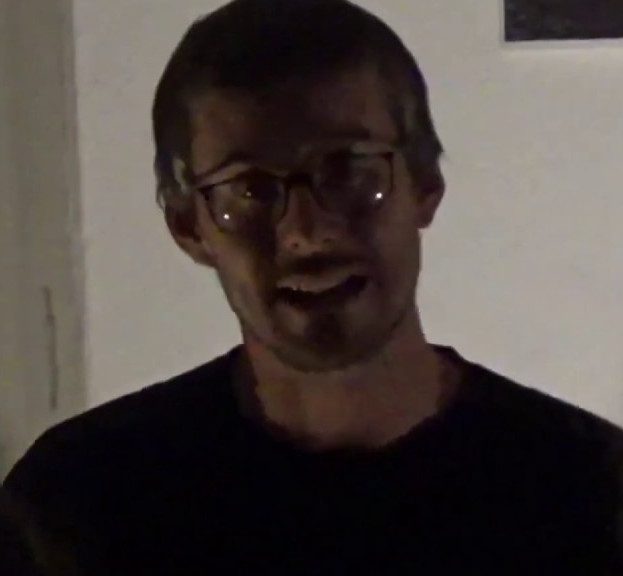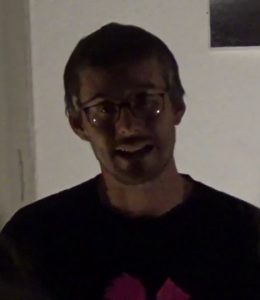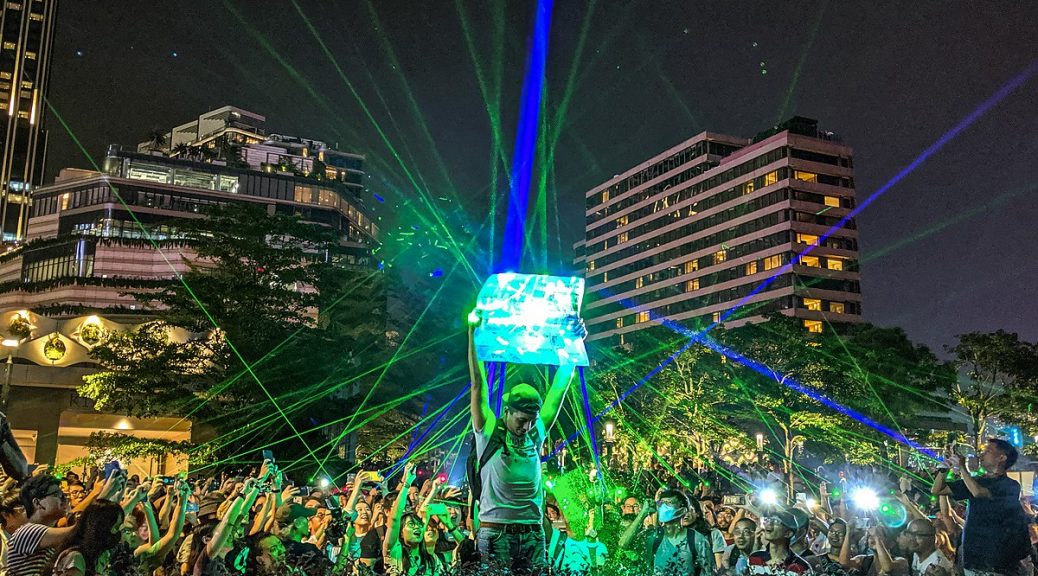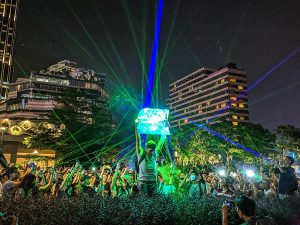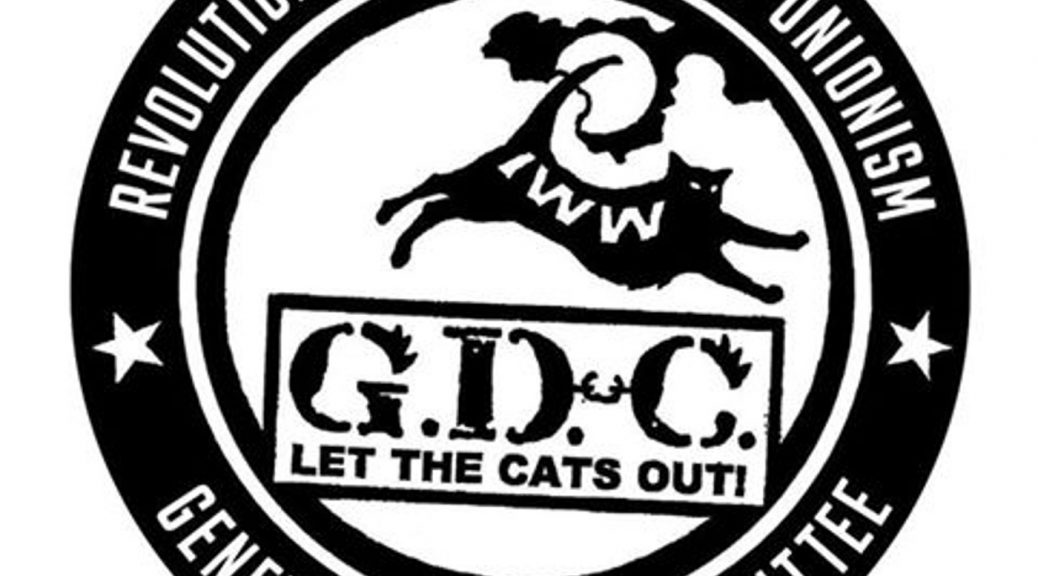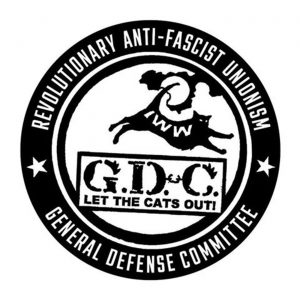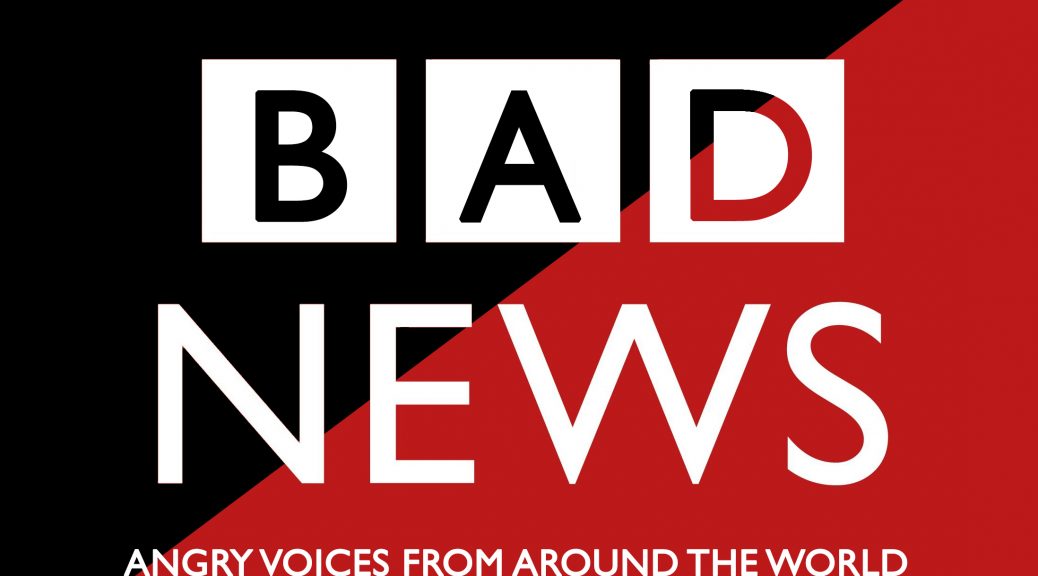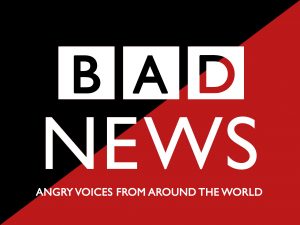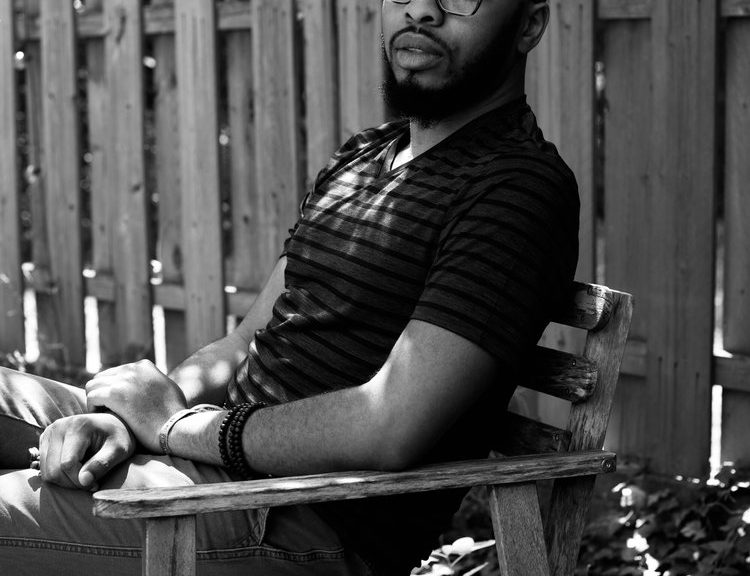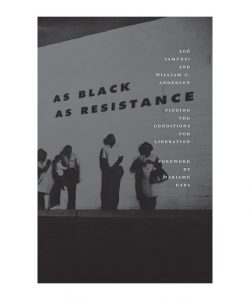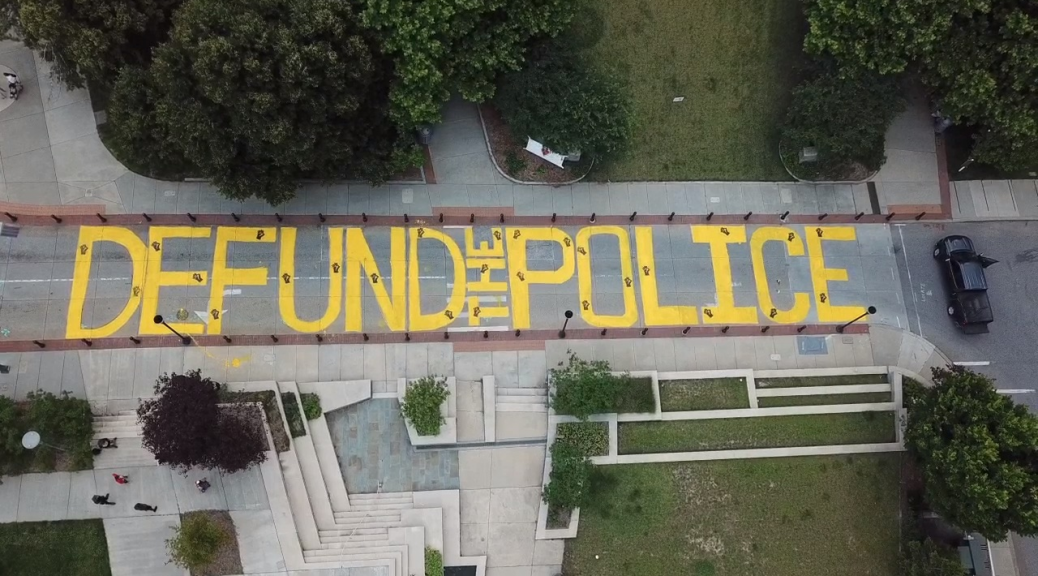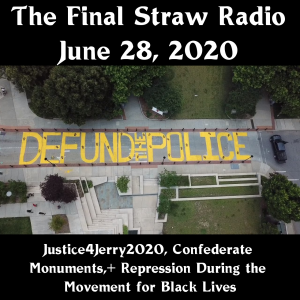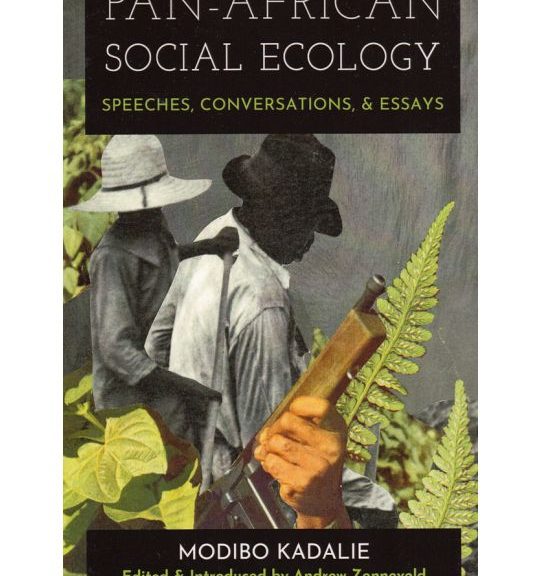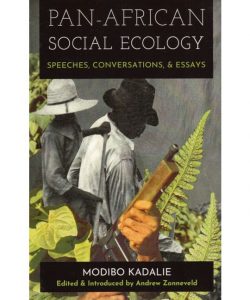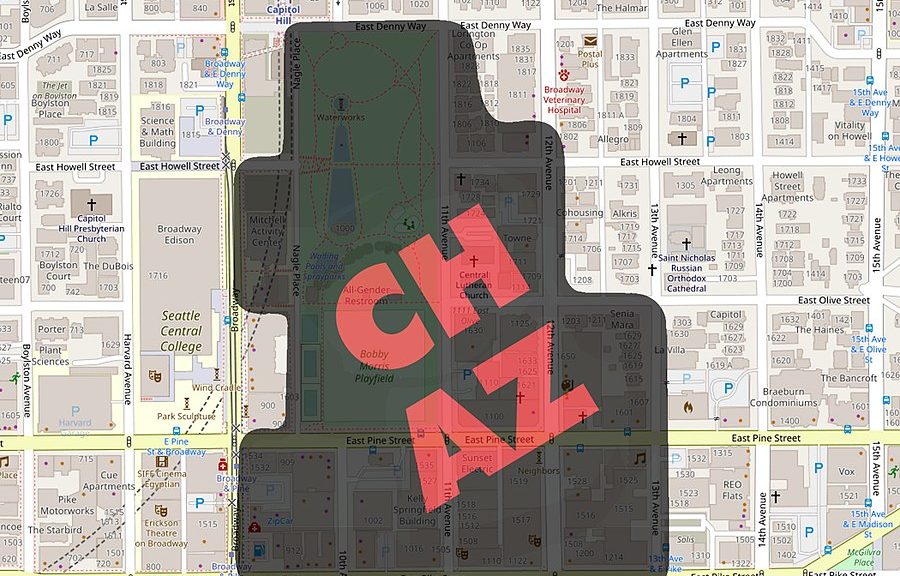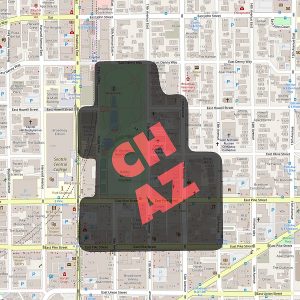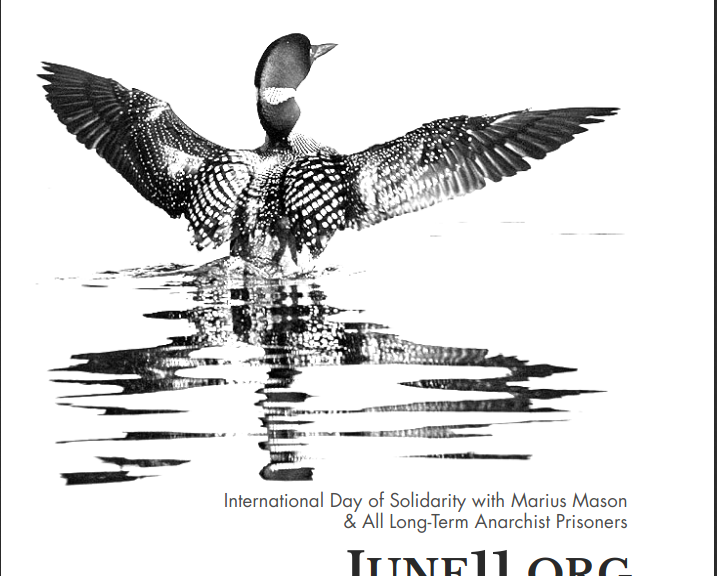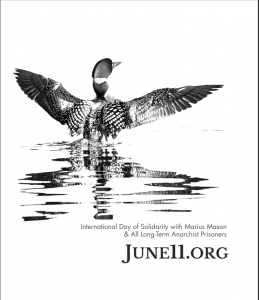Aric McBay on Ecology and Strategies for Resistance
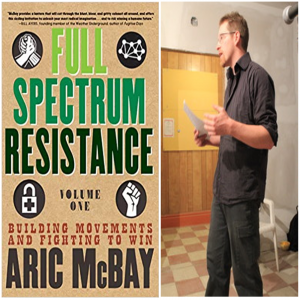
This week we are airing a conversation that we had a few weeks ago with Aric McBay, who is an anarchist, organizer, farmer, and author about his most recent book called Full Spectrum Resistance published by Seven Stories Press in May 2019.
This book is divided into 2 volumes, and from the books website [fullspectrumresistance.org]:
“Volume 1: Building movements and fighting to win, explores how movements approach political struggle, recruit members, and structure themselves to get things done and be safe.
Volume 2: Actions and strategies for change, lays out how movements develop critical capacities (from intelligence to logistics), and how they plan and carry out successful actions and campaigns.”
This interview covers a lot of ground, with topics that could be of use to folks newer to movement and ones who have been struggling and building for a while. McBay also talks at length about the somewhat infamous formation Deep Green Resistance, some of its history, and tendencies within that group that led him to break with them.
Links to Indigenous and Migrant led projects for sovereignty and climate justice, and some for further research:
- Wet’suwet’en Strong [groundworkforchange.org/wetsuweten-strong.html], which includes extensive educational material on allyship, racism, settler colonialism, and decolonization.
- Interview on TFS with Smogelgem, a Wet’suwet’en Hereditary Chief of the Likhts’amisyu clan, on ongoing struggles against pipelines and moves to create a Wet’suwet’en lead climate change research facility on their lands at Parrot Lake.
- Indigenous Environmental Network [ienearth.org]
- Migrant Rights Network [migrantrights.ca/about]
- Igniting a Revolution, Voices in Defense of the Earth [akpress.org/ignitingarevolutionak.html] eds. Steven Best & Anthony J. Nocella, II
- Judi Bari, Revolutionary Ecology [judibari.org/revolutionary-ecology.html]
Links for more reading from Aric McBay:
- fullspectrumresistance.org
- aricmcbay.org
- Aric McBay on Facebook (search “Aric McBay Author”)
Music for this episode in order of appearance:
- kidsnextdoor – Carmack Stackin That Brass (Creative Commons)
- Fennec Beats – I just feel sometimes (Creative Commons) (loop created by William)
– — – —
You can write to Sean Swain at his latest address:
Sean Swain #2015638
Buckingham Correctional
PO Box 430
Dillwyn, VA 23936
You can find his writings, past recordings of his audio segments, and updates on his case at seanswain.org, and follow him on Twitter @swainrocks.
. … . ..
Transcription
TFSR: So I’m very proud to be speaking with farmer, organizer, artist and author Aric McBay. Thank you so much for taking the time to have this conversation. Would you mind telling us a little bit about yourself, what stuff you’re farming, for instance, where you are, and what sorts of organizing you’re involved in?
Aric McBay: Sure. And thank you so much for having me on your show. So I farm just east of Kingston, Ontario. We have a vegetable CSA farm Community Supported Agriculture. So we grow about 40 or 50 different varieties of vegetables, and we provide those to about 250 households in our area. We do kind of a sliding scale to make it more accessible to people. And we normally host a lot of different educational events and workshops. But of course most of those are on pause right now.
In terms of community and activism or community engagement, I have worked on many different causes over the years. I’ve worked with militant conservation organizations like Sea Shepherd or doing tree sits. I’ve been a labor organizer, I’ve been a farm organizer. I’ve helped start community gardens. A lot of the work that I do right now is about climate justice and about other issues that are topical, at different times in my area, especially prisons, and housing right now. Prisons are quite a big issue that the nearest city Kingston has the largest number of prisons per capita of any city in Canada. So prisoners issues continue to be very important and I think that the situation with COVID has only kind of highlighted the ways in which prisoners are treated unfairly, and in which the prison system actually makes us less safe, makes our society more dangerous rather than less so.
TFSR: Well, you did an interview with From Embers at one point, which are friends of ours and members of the Channel Zero Network. They also had a show recently, or I guess a couple of months ago, about the pandemic and the history of pandemics in the Canadian prison system. And it’s like, yeah, it’s pretty sickening. And you’re on occupied Anishinaabe and Haudenosaunee land, right?
AM: That’s correct. Yes.
TFSR: And this is Tsalagi and Creek land where I’m calling you from. So you’ve been thinking and working around big picture ecological survival, and as you said, ecological justice for quite a while. For someone picking this up on the radio and maybe not keen on environmental concerns, can you give a kind of a quick snapshot of where the civilization is in terms of destroying the Earth’s capacity to carry complex life?
AM: Sure, and it’s so easy to forget about or to push aside because the other emergencies in our daily life just keep kind of stacking up. So right now, we are in the middle of really a mass extinction on on this planet. And industrial activity, industrial extraction has destroyed something like 95% of the big fish in the ocean, has fragmented huge amounts of tropical forest and deforested many tropical areas, including much of the Amazon at this point. But it’s really climate change that’s kind of that global, critical problem. The temperature has already gone up nearly one degree from their kind of pre-industrial norm, but the emissions that human industry have put into the atmosphere of the greenhouse gases, like carbon dioxide and methane, are already enough to set us on a path of significantly greater warming. That’s even if we stopped, you know, driving cars, or burning coal today.
And so that produces a bunch of different challenges. Of course, we’re going to see already more and more hot weather heat waves, like we’ve certainly been seeing this summer, more extreme storms happening more frequently. But in the long term, the outlook is potentially very grim. Depending on the emissions that are produced around the globe, we could be looking at not just one or two degrees of warming, but potentially five or six degrees of warming by the end of the century. And that produces a very different world from the one that we live in. Even two degrees of warming would be enough to essentially wipe out all of the coral reefs on the planet, to wipe out entire biomes.
We’re at the point where even relatively conservative international organizations understand that climate change could displace hundreds of millions of people, could create hundreds of millions of climate refugees around the world. And there’s never been any displacement like that. You know, when you talk about making a place where where potentially billions of people live, much harder to live in, and much harder to grow food. And, you know, we’ve seen things like the so called Arab Spring, for example, and the situation in Syria where those areas of unrest or those uprisings were triggered, in part by prolonged droughts and agricultural failures. And we have seen the streams of refugees coming from those places, especially in the United States, has really increased the amount of xenophobia and racism I think that a lot of people on the right feel comfortable demonstrating.
So the ecological crisis is not just about fish and trees, it’s really about the kind of society that we’re going to have in the future. For human beings, are we going to have a society where fascism is considered kind of a necessary response to streams of refugees moving from equatorial areas, as of local economies collapse? Are we going to see an even greater resurgence of racism in order to justify that? Are we going to see much more draconian police response to deal with the unrest and uprisings that could happen? So our future, our future in terms of justice and human rights really depends on us dealing effectively with climate change in the short term, because climate change is not something that we can kind of ignore and come back to and 20 or 30 or 40 years. There’s a real lag effect, that the emissions now those are going to cause warming for decades or even centuries. And the response is really nonlinear. So what I mean by that is, if you double the amount of greenhouse gases that you’re putting out, that doesn’t necessarily double the temperature impact. There are many tipping points. So as the Arctic ice melts in the Arctic Ocean, and that white snow turns to a darker sea, then that is going to absorb more sunlight, more solar energy and accelerate warming. It’s the same thing in the Amazon rainforests, the Amazon rainforest creates its own climate, creates its own rainfall and clouds. So you can easily hit a point where the entire forest is suddenly put into drought and starts to collapse.
We really need to prevent those tipping points from happening and to act as quickly as possible to prevent catastrophic climate change, because it’s going to be almost impossible to deal with, in a fair way once that happens. And that’s really the idea of climate justice, right? That the impacts of global warming are disproportionately put on people of color, on low income people, on poorer countries. And so if we want to have a fairer future, then that means those of us who are living in more affluent economies have a responsibility to reduce those emissions. Those of us who have more affluent lifestyles, their main responsibility to deal with that, to produce a future as well, that is fair and just and where human rights are still important.
TFSR: And like to, I think, reiterate a point in there, it seems like fairness and justice are good rulers to kind of hold ourselves to, but it seems like it’s for the survival of the species, as well as for the betterment and an improvement of all of our lives with these eminent and emergent threats. Resolving this and working towards working together with everyone is the best option.
AM: Yeah, I mean, I think it’s true. And I think one of the reasons that I’m interested in organizing around climate justice is because it’s one of the ultimate areas of common ground, right? It kind of connects people who are in many different places and working on many different struggles. Because activists who I work with, who are mostly anti-racist activists, understand why this is important. I mean, we’re already seeing that impact around the world. And activists who work on food security and hunger, I mean, it’s totally clear why climate change is important, because our ability to grow food in the future depends on avoiding catastrophic climate change. When I’m working with anti-authoritarians, it’s the same thing. So I really do see climate justice as an important movement building issue, something that can connect a lot of causes that might seem more disparate from from kind of a distance.
TFSR: I think your work does a really good job of pulling together, the fabric, sort of like weaving together these pieces and patchwork to say that these are all interrelated. And for us to ignore one of these elements means that we create a much weaker fabric, if even something that’ll hold together at all. Your most recent and huge two part book was entitled Full Spectrum Resistance, and the first subtitle was Building Movements and Fighting to Win, and the second was Action and Strategies for Change. Can you share what you mean by “full spectrum resistance”, and what you hope these books will bring to the table for folks organizing to not only stop the destruction of complex life on Earth, but to increase the quality of our survival and our living together?
AM: Of course. So I wrote this book because I’ve been an activist for more than 20 years, and almost all of the campaigns that I worked on, we were losing ground, right? I mean, that was the case for many environmental struggles, but also in struggles around the gap between the rich and poor, around many other things. But I saw in history and around the world, many examples of movements that had been incredibly successful. And the fact that a lot of the rights that people take for granted today – a lot of our human rights – come from movements that learned really valuable lessons about how to be effective. Movements that didn’t know necessarily know at the beginning, what would create kind of a winning outcome. And so full spectrum resistance is an idea that I think encapsulates some of the key characteristics that successful movements need to have, especially when they want to move beyond maybe a single issue or a local concern.
So one of those components of full spectrum resistance is a diversity of tactics. I think that’s really critical. I think one of the reasons that the left hasn’t been as successful in recent years, is that it’s really been whittled down to a couple of main tactics, it’s been whittled down to voting, and to voting with your dollar, right? To kind of ethical consumerism. And those are very limited tools. And they’re tools that leave out the vast majority of tactics that movements have used in the past, right? Successful movements like the Civil Rights Movement, or the suffragists or their movement against apartheid in South Africa. They used a huge range of tactics. I mean, they certainly use things like petitions and awareness raising tool at different times. But they also use tactics that allowed them to generate political force and disruption. So a lot of people don’t realize that, you know, to win the right to vote suffragist movements use property destruction and arson quite frequently. When people are talking about Nelson Mandela and the anti-apartheid movement, people often use Nelson Mandela, ironically, as a reason why we shouldn’t be disruptive. They think of him as this really peaceful guy because he spent close to 30 years in prison. But Nelson Mandela helped to create the underground armed wing of the African National Congress. That was a struggle that used armed self defense and sabotage extensively in South Africa. And allies used all kinds of economic disruption, especially divestment around the world to try to pressure the South African government. And we can take a look in more detail at some of these case studies if you want. But I think a diversity of tactics is really critical in building movements that win. Because if we stick to only one tactic, then that really limits our ability to escalate, and that limits our ability to adapt. It’s easy for those in power to understand how to undermine one tactic, if it’s the only one that we use.
I think another aspect of full spectrum resistance is cooperation among different kind of…constituencies, you might call them. So those in power can stay in power through divide and conquer, right? That’s one of their primary tools is to split resistance movements or social movements into different manageable chunks, like “militants” and “moderates”. So they can split the people who are willing to go out into the street and protest with kind of maybe a broader, more moderate group of people who support them. And they can just go ahead and arrest you know, a small group of militants in the street, if they’re able to separate those people.
Let me, actually let me give you an example of how a diversity of tactics and this cooperation can work. One of the movements that I talk about, or one of the campaigns that I talk about in the book, is an anti-apartheid group that organized in New York City at Columbia University in the 1980’s. And they were an organization that was trying to get Columbia University to stop investing in companies that did business in South Africa, right? South Africa was kind of a resource empire at the time, there were huge mineral resources that were being extracted, and people were making a lot of money. But because of the racism, because of the authoritarianism of that apartheid system, people around the world were really struggling to generate political force to put the pressure on to end the system of apartheid.
And so Columbia University, like many universities had big endowments, big investments. And there is this group is called the committee for a free South Africa at Columbia University. And they started with kind of classic strategy of awareness raising, so they held discussion groups and teachings about apartheid. They had, you know, petitions to try to convince the government of Columbia University to divest from South Africa. And they really did everything that you were supposed to do, right? They did all of the things that we’re kind of told, told that we are supposed to do in order to succeed. They built that public awareness and understanding, and they hit a wall. They got to the point where the administration and faculty and student representatives in the student government all voted for divestment by the top level of government, their board of trustees overruled them. And I think that point that they reached is a point that a lot of our struggles eventually meet, right? Where we’ve done the things that we’re supposed to do, but still those in power refused to do what is right. And it was a real turning point for those anti-apartheid organizers. And their attendance at events started to decrease after that, because well people thought “hey, this struggle is over, the Board of Trustees isn’t going to diverse, so what can you do, we just lost this one.” But those organizers, they weren’t willing to just give up, they realized they needed to escalate to win.
They decided to plan a series of disruptive simultaneous actions, they started a hunger strike. And they took over a building, they blockaded a building on campus and said “we’re not going to go anywhere until Columbia University divest.” And this was a big risk for them, right? Because they’d seen this declining participation. But it actually worked. They started with a handful of people at this blockade. And more and more people started coming. There’s this fascinating statistic about this campaign. Before the blockade, only 9% of the student body considered themselves at least somewhat active in that campaign for divestment. So only 9% had shown up to a rally or you know, signed a petition. But in the weeks to come, 37% of the entire student body participated in that blockade, by joining rallies or by sleeping overnight on the steps.
So, you know, that kind of divestment campaign, I think is very important. Now, in part because that campaign worked, Columbia University eventually did give in and did agree to divest. And that shows to us, you know, the value of a diversity of tactics, the value of disruption, the value of cooperation between people who are using different kinds of tactics. I think that really is something that we can learn and apply very effectively. And then the current day, another key part of full spectrum resistance is that solidarity between movements, to avoid the divide and conquer tactics that those in power try to use. And the fourth thing is really an intersectional approach is to try to synthesize the different ideas and the different philosophies that motivate different campaigns and that motivate different movements. Because we’re in a time when I don’t think single issue campaigns can succeed anymore, certainly in the context of climate change, but also in the context of rising authoritarianism. We need to look at how we can build that shared analysis, build genuine intersectionality in order to create movements that are truly powerful and effective.
TFSR: So with the Columbia example, it’s really interesting to point to that, I hadn’t heard of that before, and that seems like there’s a lot of lessons to be gathered from that. With what we’re talking about with the scope of climate change, like the larger scope of climate change, obviously, is you can break it down into smaller and smaller points of this extraction thing happens in this place, those materials are transported here, they’re processed here, they’re consumed or subsidized by these populations are these organizations. So I guess, like the level of amplification of resistance that you’re willing to apply to a situation should scale according to what you’re trying to succeed at doing.
With this wider scope of resistance to something that you could look at as a whole as the way that governments backup energy infrastructure, and monocrop industrial agriculture, the scale of this…I get kind of lost between that point of pressuring the people at the top of the university to divest once all the other steps have been denied, like the scaling between that and looking at, say, for instance, the US government and pressuring them…I kind of just get lost in the clouds at that point. I’m like, well, the US government is going to want to continue business as usual as much as it can, in part because of its investors, much like Colombia, but also because it’s sustaining a more “holistic” system. How does the anecdote of Colombia and the resistance there fit into a wider scope of looking at governments and the ecological destruction that they’re involved with?
AM: Yeah, that’s a great question. And I think one of the biggest challenges of the climate justice movement is the way that climate change and fossil fuel emissions, it all just feel so overwhelming and so diffuse, it’s hard to figure out, where should we actually focus our energy. But I think that many, or most movements in history, at some point, faced a similar problem, right? I mean, the anti-apartheid movement that Colombia was was a part of and were supporting. That was a movement that lasted for generations, the African National Congress was founded in 1912. And certainly at different points it was very unclear what people should do, you know, what was actually going to work against such a violently repressive regime. And so for me, I think there are a bunch of things that we can and should do to help address problems that seem really overwhelming or diffuse. And one of them, of course, is just to keep building our movements and to keep building our capacity and our connections. Because as long as we feel like we’re kind of isolated individuals or isolated pockets of resistance, it’s hard for us to see how we can tackle bigger problems. And that isolation is not an accident. Any authoritarian power especially wants to keep people divided and distrustful. So it’s important that we build cultures of resistance, that we build real connections with each other, and that we celebrate movements in the past that have won, so that we can kind of build up our capacity.
And I think it’s also important to look for areas where we can have early wins or kind of low hanging fruit. Areas where the problem is not as diffuse, but where the problem is more, is much more concrete or much more tangible. And so a great example of both of those things that work would be some of the mobilization against fossil fuel that has happened in so-called Canada in this year, and in recent years. So I don’t know if all of your listeners have been following this, but in February and March of this year of 2020, we saw some of the biggest Indigenous solidarity mobilizations in Canadian history. And those were kind of provoked by a particular flashpoint on the west coast. So there’s a settlement called Unist’ot’en which is on a pipeline route, there’s a site where the Canadian government and a variety of oil companies have been trying to build a series of pipelines to the west coast so that oil and fracked natural gas can be exported. And the Indigenous people who live there, the Wet’suwet’en, the traditional hereditary leaders have been very committed for many years to stop that from happening, and have essentially built this community on the pipeline route to assert their traditional rights and to assert their Indigenous sovereignty.
And in February at the beginning of February 2020, the government sent in really large armed force of RCMP officers and other officers, to try to kind of smash through different checkpoints that Indigenous communities had set up on the route leading to this site on the road, and also to destroy the gate that was keeping oil workers from going in and working on the construction of this pipeline. And the community there had been really good at building a culture of resistance over years, not just amongst Indigenous people, but among settler allies across the country. And so when that raid began, there was a really powerful response from many different communities. So a Mohawk community located just west of me, Tyendinaga, they decided to blockade the major east-west rail line that runs through Ontario, and that is kind of a bottleneck for the entire country. And other Indigenous communities started to do this as well, to set up rail blockades. And essentially, the entire rail network of Canada was shut down for weeks. You know, there were massive transportation backlogs.
And there were other disruptive actions as well, things like blockades of bridges – including international bridges – blockades and slowdowns of highways. And there was all of this mobilization that a year or two ago seemed inconceivable, it seemed impossible that any kind of disruption would be able to happen on that scale because nothing like that had happened before. And it was a really powerful movement that did cause the government to back off and cause the police to back off and start these new negotiations. And you know the COVID pandemic was declared at the same time as a lot of this organizing was still happening, so it’s kind of unclear what might have happened if that action had continued without a pandemic. But the rallying cry for a lot of organizers at that point was “shut down Canada”, which the pandemic did on a much larger kind of unanticipated scale.
But I think that example of the Wet’suwet’en solidarity and the disruption around it really points the way to potential successes and potentially more effective styles of organizing for the climate justice movement. And I think they have done a lot of things, right. They built that culture of resistance. So they didn’t just wait around for kind of a spontaneous uprising to happen, which I think almost never happens. They had built these connections over many years and build capacity and people had trained each other and trained themselves. And they had a particular location that they were trying to protect, right? So it wasn’t just “let’s go out and protect the entire world and protect all people.” You know, it’s hard to mobilize movements around something that’s so vague, but there is a particular community of a particular group of Indigenous people on a particular spot. And I think it’s much easier to mobilize folks around tangible sites of conflict like that.
The last thing that they did that was really effective, and that I think we can learn from, is that they turned the weakness of having the fight against this diffuse industrial infrastructure into a strength. So instead of just saying, “Oh, well, there’s so many pipelines, there’s so many rail lines, there’s so many highways, nothing we can do is going to make any difference.” The movement kind of said “Hey, there are all of these pipelines and rail lines and highways that are basically undefended, and that we can go and disrupt – even if it’s only for a day or two – and then move to another site. This actually gives us the potential to be incredibly effective, and to cost oil companies a lot of money and to cost the Canadian economy a lot of money.” Because that’s often what it boils down to right is “can we cost a corporation or a government more than they’re getting from doing this bad thing?” And I think that the Wet’suwet’en struggle has been an example and a demonstration of how to do that.
TFSR: Yeah, absolutely. And I think that that points to a really cogent point in terms of how to think about this sort of resistance. There were, what, 200 years for the Canadian government to think about its relationship to Indigenous communities and the sovereignty of like…them just pushing through sovereign territories to get what they want to extract, to run railways, to put pipelines in or whatever. And so appealing to the logic or the “reasonability”, or the sense of justice of the people that were representing the bodies that were sitting in the chairs in the suits in government – who were enacting the logic of capitalist settler colonial government – was not working.
But what did work was showing that if you do not see this point, we will shut down your ability to do this, or we will escalate to the point that you will have to like, step up further, and push back. And I think it’s a point that often gets lost. And I think, consciously, it’s been inculcated out of us, I guess, that’s a way to say it? Like, in the United States at least, we’re educated that the example of the suffragettes, the example of Gandhi, the example of the resistance to apartheid in South Africa, all of these examples, the winning view that’s given by the power structures when they educate us is that reasonability won out because of the justice of the cause. And because people went out and put their bodies on the line, but also like their petitions were eventually heard, their voting actually was the effective measure that changed the balance of power and that forced those in power to recognize the justice of the demands. And I think that’s like pandemic offers an interesting insight into, again, how that’s BS, like marches don’t stop people in power from making decisions. The threat that marches bring with the amassing of angry people who can do damage, or who can disrupt things, is what actually makes people in power look at marches and why that specific way of engaging is considered dangerous to those in power and why they want to stop that sort of thing.
I think that there’s a parallel to be drawn between that great example with the Wet’suwet’en folks and the resistance that was given to the attack on Unist’ot’en and Gitdimt’en gate, alongside of what we’ve seen, during this pandemic, in a lot of countries, and particularly the United States – where I’ve heard this morning on the radio, which, hopefully, hopefully, it’ll be wrong by the time this gets broadcast – but the US where I’m based, has a quarter of the deaths from COVID-19, around the world, and yet we are something like 5% of the world population. Those are similar numbers to how many people are incarcerated in this country versus the rest of the world. And people in power, at this point are not representing that they have the ability, the capacity, the interest, the will to actually stop this pandemic from spreading, and killing off the people that are most marginalized – starting off with the people that are most marginalized – in our society.
And so it seems like appealing to that same wing of power, the ones that profit off of ecological destruction when it comes to scaling back ecological destruction, and trying to reverse that trend, doesn’t seem that reasonable. But the sort of like direct action instances that you’re talking about, in coordination with other methods of dialogue and culture building, feels really important and exciting to me. I don’t know if you think that seeing the reaction of governments during pandemic is comparable to the vast amount of knowledge of ecological destruction, is an apt comparison or not?
AM: Yeah, I think you make very important points. And I think that, especially under capitalism, one of our continuing challenges with those in power is that they always consider profit more important than life, right? They always consider profit more important than human safety and human wellbeing. And that applies whether we’re talking about incarceration or COVID, or climate change, or police departments. And because of that, those in power are almost never convinced or persuaded by arguments to do the right thing. And that’s the case in the examples that you’ve mentioned, as well. If we look at those historical movements, we have been given a really sanitized kind of false narrative about how things like the Civil Rights Movement worked, or the suffragettes – or the suffragists, rather – we’re told, hey, that, you know, the Civil Rights Movement, just finally convinced people because people like Martin Luther King were willing to risk getting beaten up. And that’s what changed things. But that is not primarily what changed the people who are in positions of power, right? I’m sure there were a lot of people on the sidelines, especially in the north, who saw Black people and white people being beaten up by police on the Freedom Rides, for example, and that changed their opinion about things, or that helped mobilize them to do something about racism. But the racism, especially in the Southern states, and segregation, that didn’t end because of the Civil Rights Movement, giving a good example, that was dismantled, essentially, because of different kinds of force, political force, and sometimes physical force.
So in the Civil Rights Movement, we can look at the example of the Freedom Rides, when groups of white and Black organizers rode buses through the South where they were supposed to be segregated. And those buses were attacked by police and vigilantes, violently attacked, people ended up in hospital, buses were set on fire. And that didn’t actually end until essentially the federal government intervened, the federal government sent in troops to escort those Freedom Riders around the South to kind of complete their journey. And I think that’s something that people forget often, that racist violence didn’t just end because of a good example. It ended because there was some other form of force being employed. And I think people also forget that a lot of the non-violent demonstrations, the Civil Rights Demonstrations in the south, were protected by armed groups like the Deacons for Defense. The Deacons for Defense were an armed group before the Black Panthers, that was in many cases made up of military veterans, Black military veterans, who decided that they were tired of seeing civil rights marches getting attacked by the KKK or their police, and said we’re going to use our right to bear arms, and we’re going to go down there and defend people. And so a lot of the nonviolent actions that happened, were protected by armed Civil Rights activists.
So these sorts of things get written out of the history, especially by the in power, because those in power want to seem like the good guys, right? They want to seem like, “Hey, we are the ones who are going to come down and give you the rights, if you can provide us a good example, we’re just going to gift you these rights, these human rights” and that’s almost never have things will wind they will one because people were willing to struggle and people who are willing to disrupt.
I think that ignorance of social movement struggle is a form of white privilege. I have seen this at many different workshops, and many different talks that I’ve given, that often at the start of a workshop, I’ll ask people when they’re introducing themselves to name movement that inspires you, or name a campaign that inspires you. And oftentimes, the people who are coming to that workshop who are white organizers, who are newer organizers, they don’t have such a large repertoire to draw on, right, they’re much more likely to name a movement that happened locally or a movement that’s been in the news. Whereas a lot of the organizers who are people of color or from other marginalized communities, they can list off a ton of movements that inspire them that they’re learning from. And that’s important because marginalized communities understand better how to deal with those in power, how to get rights and how to protect your rights. And that’s often through social movements and through struggle, whereas people who are used to those in power looking out for their interests, especially, you know, middle class white men, they can afford to ignore social movement history, because they haven’t really needed social movements in the same way, or they don’t appreciate them.
And so when we have situations like we have now with growing authoritarianism, much more obvious racism, the climate emergency, people who are in positions of privilege, they find themselves at a loss, because they don’t know that movement history, so they don’t know how to respond. And it’s often movements of color movements of marginalized people, those are the movements that are going to teach us how to deal with these deep systems of injustice, these deep systems of inequality.
TFSR: So I guess, shifting gears back to like questions of wider approaches towards resisting ecological change, over the last couple of years there have been a few groups that have garnered a lot of headlines, and gained some sort of recognition and interplay with mainstream media, with governments around the world. I’m wondering what your full spectrum approach towards resistance sort of use the efficacy, or the impact of groups. I’m thinking of 350.org, Sunrise Movement and Extinction Rebellion, do those feel like single issue approaches towards ecological struggle? Because I know that there was some critiques definitely in the UK about extinction rebellion, specifically, the leadership weeding out people who are wanting to bring up questions around not only ecological devastation, but also around racism and around the existence of industrial capitalism, and its impact on that.
AM: Yeah. And I think that’s a big problem. I think that you can’t really address climate change without talking about capitalism, you can’t address climate change without talking about racism. And I think that, in general, the big liberal movements against climate change, or the big liberal organizations have failed. Partly for that reason, probably, because they’re not, they’re not looking at the root problems. They’re not radical organizations, right, they’re not going to the root of the issue. And so they’re not going to be able to use the tactics that will resolve it.
I think at this point, companies like Shell Oil, and you know, a variety of petroleum companies were very aware of climate change, going back to the 1960s. I mean, they had more extensive research at that point into climate change than the general public. And when I’ve done research into organizations that have fought against offshore drilling, for example, you can see that even in the 1980’s, oil companies like Shell are already building their oil rigs with taller legs in order to compensate for the sea level rise they expect to see. So the issue is not that those in power are totally ignorant of climate change, it’s that they’re making a lot of money from climate change and they think with all of the money they are making, that they can deal with the consequences for themselves personally, although not for everyone else.
And so that’s a huge problem and in some ways it’s slightly different from COVID. You know, in Canada, I think one of the reasons that we’ve seen a much stronger national response is because very early on the prime minister’s wife tested positive for COVID. And so clearly the impacts of the Coronavirus have been disproportionately bad for communities of color and for low income communities, but there still is much more potential for affluent people to get it. Whereas something like climate change, I think those in power have felt very isolated from especially in more northern countries. So that’s a huge problem. And that’s one of the reasons that just appealing to the good sensibilities of those in power is not going to succeed.
Maybe I’ll speak mostly about Extinction Rebellion, because when I was doing my book tour last here, and traveled from coast to coast in Canada, I ended up doing workshops about direct action and movement strategy for a lot of different Extinction Rebellion groups here. And I think, you know, from what I’ve seen, the people who have participated in those events have been very committed and strongly motivated, they understand that it really is an emergency, but they don’t always have a lot of history in kind of activism, or they don’t have as much movement experience as some of the other groups that I’ve worked with. Which can be good and bad, right? I mean, I think, you know, a lot of the liberal left, the reason that groups keep failing to address the climate crisis is because there’s kind of a standard issue dogma about how we need to convince governments to change and ask politely, and so on. And that’s really a dead end. So I think for people new to a movement or getting newly active, they are potentially more open to new ideas and new ways of doing things.
But I think that the Extinction Rebellion kind of movement in general, in Canada, and definitely in the UK, has not done a very good job of, of including the needs of Indigenous communities, and has not done a good job of including the needs of communities of color. And in particular, I think we see that in the relationship between Extinction Rebellion, and the police. This was a discussion that came up in almost every XR group that I have spoken with, that that kind of official line from XR in the UK is that you’re supposed to have a good relationship with the police, you’re supposed to go to the police in advance of an action and let them know what’s going to happen. And, you know, as a direct action organizer myself, and on many different issues, that sounds absolutely ridiculous, for a lot of reasons. One of which is that you lose the element of surprise, which is one of the key strategic advantages that smaller resistance movements need to have. But also, because if you go and try to cozy up to the police, or try to expect them to give you a good treatment because you’re bringing them a cake or something, I mean, that is really kind of a white focused thing to do, right? And that ignores the long standing grievances of Black and Indigenous communities in particular, because of the violent treatment that they’ve experienced at the hands of police. And of course, that has become even more obvious in recent months, and you know, the amount of attention and mobilization is long overdue. I think that’s been a real weakness of Extinction Rebellion, and I think it’s going to need to address that, and other climate justice movements will need to address that in order to succeed.
I think another challenge to Extinction Rebellion has been that they still are kind of assuming that if they make a strong enough argument that those in power will change their behavior. Because one of their big demands has been for those in power to tell the truth. And from my perspective, as an organizer, that almost never happens, right? Well, those in power rarely tell the truth and you don’t want to give them the opportunity to dominate the messaging. Those in power, whether it’s the corporate PR officers or government PR, I mean, they almost always dominate public discourse. And so if we have an opportunity to put in our own message, we should be doing that not kind of punting it back to those in power so they can either repeat the same business as usual line, or try to co-opt or undercut what we’re saying. I think there’s a huge strategic mistake. And what it means is that even if you’re blocking bridges, you can be doing that essentially as a form of militant lobbying, because you’re putting the potential for change in the hands of other people. And I think that movements that have succeeded in overturning deeply unjust systems In the past, they have been able to build up communities of resistance, they’ve been able to build up movements that can direct the changes that need to happen, and movements that are led by the people who are affected. In climate justice, that means, you know, we really need to highlight the voices of Indigenous communities, we need to highlight the voices of communities of color in the global South. And if we don’t do that, not only is it morally wrong and a moral failing, it’s going to be a strategic failing as well, because we’re not going to have the experience and the perspective we need at the table to create movements that will win and to create strategies that will win. It’s a real dead end.
So, you know, from my perspective, the most exciting movements that I see around climate justice are being led by communities of color, are being led by Indigenous communities, and that are incorporating people from a lot of different backgrounds. But keeping in mind that it’s not an option to fail here, it’s not an option to say, “Oh, the government should reduce emissions. And if they don’t, I guess, oh, well, we’ll go back to what we’re doing”, we actually really have to commit ourselves to to winning this struggle. And I think a lot of affluent white communities, because they’re insulated from the effects of climate change, at least so far, they don’t have that same motivation. They don’t have that same drive to win, they don’t have that same genuine sense, I think maybe of desperation even. So for them, the risk of getting arrested a few times maybe feels like a bigger risk than the risk of the entire planet being destroyed. I think the calculus of risk for Indigenous communities is often different, which is why we see them taking so much leadership like in the case of the Wet’suwet’en.
TFSR: So there’s the example of the Wet’suwet’en in terms of not only a sovereignty issue, but also the ecological impacts and the solidarity that they’re offering to the world by trying to blockade the extraction and eventual burning into the atmosphere of, I believe the tar sands, right, from Alberta. And then skipping to a not specifically ecological movement, the Black leadership and leadership of color in the Movement for Black Lives and the movement against white supremacist violence and police violence that sparked off with George Floyd’s assassination, but also has spread around the world because anti-blackness is so endemic in Western civilization. I’m wondering if there’s any other examples of current movements, particularly around ecological justice, that you feel inspired by that are led by communities of color and frontline communities?
AM: Hmm, that is a great question. I think that we have seen, you know, in Canada in particular, but all over we have seen many different movements that are Indigenous lead, I think that’s often the movements that I end up working with or supporting. The Dakota Access Pipeline is another example of a movement that has been Indigenous lead and has been very successful. I think, around the world, I see a lot of hope in organizations like La Via Campesina – the international povement of peasants and small farmers – which is a very radical movement that looks to overturn not just fossil fuel emissions, but also capitalism in general, that looks to create fundamentally different relationships between people and the planet, and to create community relationships. I think that sort of thing is really exciting. And I think when you look at food and farm based movements, there’s a lot of mobilization potential there, because food, like climate, is one of those commonalities between people that’s common ground. Everyone has to eat every day. And so I’m very excited about the tangibility that movements around food like La Via Campesina have the potential to lead to. I think there are a lot of migrant worker and migrant justice movements as well that really understand the connection between climate and justice in a way that a lot of liberal movements don’t.
I also think that a lot of the really effective movements and groups that are led by people of color, they’re often more local, kind of environmental justice movements, they are not necessarily as big or as well known. And they sometimes don’t want to be, right? I mean, they’re not trying to kind of mimic the corporate structure. They’re not trying to become a gigantic NGO. And I would encourage people to look for those movements that are close to you, to look for those movements that are led by communities of color and that are led by Indigenous people, and to try to connect with them and to support them. If that’s not the work that you’re doing already, how does that work connect? And how can these movements help to support each other, and to develop a shared understanding, and a shared analysis of what’s needed for action.
TFSR: Cool, thank you for responding to that one. One thing I thought of was the Coalition for Immokalee Workers – which is an immigrant led struggle based out of Florida – they do a lot of media work, but they also are addressing like the real impacts of the epidemic on undocumented populations and farm worker populations in so called USA.
So people who are also familiar with your work are going to be familiar with the fact that you co-authored a book called Deep Green Resistance, alongside Lierre Keith and Derrick Jensen some years back. And DGR, besides being a book, is also an organization or a movement, a call out for a movement. And I know one notable thing that was mentioned around Extinction Rebellion was the idea of putting your name out publicly and saying “I’m going to be participating in this direct action”. And that was the thing that I recalled anarchist being critical of DGR, and ecological resistors, where people were asked to sign up publicly and make a pledge to participate in this movement. But I know that you’ve left DGR, you have made public statements about why you have left Deep Green Resistance, but I would wonder if you could reiterate those right here and talk about the group and like why you came to leave it?
AM: Sure. So when writing Deep Green Resistance, what I really wanted to do was help people to understand the climate emergency and to understand better some of the tactics that would be required to deal with it. I do think now versus 10 years ago there’s a much greater understanding that we are in a climate emergency, and that more effective action is called for. It wasn’t my intent for there to be a group or an organization by that name. I kind of figured well, other people who are doing work already and other organizations will hopefully incorporate this analysis, or it will help to mobilize new people as well. And when some of the people who had read the book said, “Oh, we should make an organization about this”. I said, “Well, okay, great”. And it was really a fairly short period that I was participating in that, in kind of the first few months, because unfortunately, what happened when groups started to organize and people started wanting to get together for kind of trainings and conferences, my co authors became very transphobic. There were, you know, people who are asking, very reasonably, “oh, can I use the correct bathroom when I come to this event?” And they would say no. And, you know, it reminds me a lot of what’s been happening with JK Rowling recently. Instead of kind of responding to this critique, or instead of responding to people’s concerns about this, they really doubled down in a way that made it impossible for me to keep working with them, or to keep working with that organization.
I’m someone who is fully in support of trans rights and trans inclusion. And I think that their anti-trans attitudes were really detestable and really destructive. In part, because, you know, a lot of experienced organizers who had been getting connected to the organization left after that, totally understandably. So, it was really disappointing and heartbreaking. And I think that the choice that they made, basically destroyed the potential of that organization to be effective, to be kind of a viable movement organization, because it was such a toxic attitude. And I believe that, in general, it’s good to give people a chance to change their opinions or to learn from their mistakes, because there’s no perfect organization, there’s no perfect movement, right? There has to be potential for growth and for improvement, there has to be potential for everyone to kind of take feedback and learn. But at the same time, if it’s clear that someone is not going to do that, then I’m not going to keep working with them, because it’s not a good use of my energies, and it’s not an I don’t want to be connected with an organization that’s going to be transphobic, or that’s going to endorse any other kind of oppression.
It was a very disappointing experience in a lot of ways, but I think there’s still a lot of valuable content in that book in the book, Deep Green Resistance. I think it still had an an impact and beneficial ways in that it helped to in some communities or in some sub cultures, to accelerate and understanding of the climate emergency. It’s just disappointing that that was the outcome. I think that hopefully it will be a lesson for other activists in the future and for other organizations, to really, from the very beginning of your organization, to set out so much clearer ground rules and clearer points of unity about anti-oppression that everyone will agree on. I think a lot of movements or organizations can emerge out of kind of an ad hoc approach, can kind of coalesce together. And I think it’s really important to pause and make sure that you’re on the same page about everything, before putting in too much effort before putting in too much commitment.
TFSR: So besides the transphobia, another critique that’s come to the DGR approach that that was sort of laid down in the book, was valorization. Maybe not in all instances, but in some instances of like a vanguard, or like a military command structure. Which, in a military scenario and like combat zones, I’ve heard it like I’ve heard anarchist talk about like, yes, it makes sense to have a clear lines of communication, someone who’s maybe elected into that position for a short period of time, and who is recallable, be a person that will make decisions on behalf of whatever like a group is in an activity. Is that an effective approach towards organizing ecological resistance? On what scale is that an effective or appropriate model for decision making? And is there a conflict between concepts of leadership versus vanguard command structure?
AM: Sure, I don’t think that we should be having military style command structures. Part of the critique that I was trying to create speaking for myself, was that consensus is not always the ideal decision making structure for every single situation. And I think, especially in the early 2000s, in a lot of anarchist communities, there was this idea that consensus is the only approach and if you don’t believe in always using consensus, then you’re kind of an authoritarian. And I think that’s really an oversimplification. I think consensus is very good for a lot of situations, right? It’s good for situations where you have a lot of time, it’s good for situations where people have a similar level of investment in the outcome of a decision or where people have a similar level of experience, perhaps.
But consensus has some flaws, as well. And I think one of them is that, you know, if you have a group of, say, mostly white people and a handful of people of color, who are trying to make a consensus-based decision about something that has to do with racism, then you’re not necessarily going to get the outcome that you want, because that is a system that can downplay inequalities in experience that are real, right? Some people have more experience of racism or, or systems of oppression and consensus doesn’t always incorporate that.
So we were talking a lot about the Wet’suwet’en example earlier, the Wet’suwet’en struggle. And when settler allies have gone to Wet’suwet’en territory to help, they actually have to basically sign off and say, “Yeah, I’m fine to accept Indigenous leadership for the duration of my time there. And if I don’t want to accept it any more than I can leave.” And I think there’s a place for a lot of different kinds of decision making structures. So for me, it’s like tactics, right? I mean, there are some tactics that are really good in some situations, and really not very helpful and others. And I feel like with decision making, it’s the same way. For myself, I prefer to work in consensus situations most of the time, because that’s a way of making sure that you’re incorporating a lot of different perspectives. But I think when you do have a very tight timeline, you know, it makes sense, as you mentioned, to consider electing people or to have people who are maybe on a rotating basis kind of in charge for that action. I think that there’s room for a lot of different approaches in terms of decision making. And like our tactics, our form of decision making has to be matched to our situation and to our goals.
TFSR: So it feels like when talking about ecological devastation, and like the precarity of where we’re at as a species, in particular – again in western civilization – that there’s this misanthropic approach towards looking at problems and solutions in terms of human caused ecological unbalance. It’s sort of a Manichaean approach. And people talk about there being too large of human populations, or historically, that sort of numbers game kind of leads to a eugenicism position. That puts blame on poor people or indigent people, and darker skinned people, as they tend to be more marginalized in the settler colonial societies in this parts of the world. And often, like, even just those nations are taking up more resources, those nations are developing in a way that’s inconsistent with you know, ecological balance.
It feels like that sort of approach is one that ignores the question of how populations are interacting – or the economic systems that populations are kept within – with the world with, quote unquote, “resources” with other species. And there’s often a presumption affiliated with that, that we as a species are alien to or above the rest of the world, that we’re not a part of nature, that we’re separate from it. And I think there’s some kind of like Cartesian logic in there, because we can think about ourselves to be self aware, in a way that we understand. We presume that not only is there a lack of agency to other elements, within our surroundings, with other living things…I guess it goes back to, like, in the western sense, stories of genesis. Of human beings being given control over the natural world to determine how those quote unquote “resources” are used, as opposed to being a part of that natural world, and that we have a responsibility for ourselves and for our siblings. Can you talk about why it’s important to challenge like, sort of the fundamental weaknesses of the misanthropic approach that looks as us as outside of the natural world? And how shifting that question actually allows us to make the changes that will be required for us to possibly survive this mess?
AM: Sure, yeah. I mean, I understand why people get frustrated with humanity. But I think, both from a philosophical perspective and from an organizers perspective, blaming humans in general for the problem really kind of obscures the root of the emergencies that we’re facing, and it obscures the things that we need to do. I think some of what you’ve talked about, it’s really different forms of human exceptionalism, right? There are some people who don’t care about the environment at all, who are human exceptionalist, who think humans can do whatever we want, we’re immune to the same kind of rules that other organisms follow. We’re immune from the effects of the weather or the planet or the ecology. And of course that’s ridiculous. But at the same time, we have at the other end, people who really believe a different form of human exceptionalism and believe that humans are doomed to do bad things, that we’re kind of doomed to destroy the planet. And I don’t think either of those things are true. I think, you know, if you look at that history of humanity and our immediate ancestors, for millions of years we managed not to destroy the planet, or even put the planet in peril. It’s really a fairly new phenomenon that specific societies, and especially specific people in specific societies, have been causing this level of destruction. And that destruction is not really about population, it’s about wealth.
If you look at someone like Jeff Bezos, the CEO of Amazon who’s bringing in what? $12 billion a day that he’s adding to his his fortune, $12 billion in profit every day, compared with someone living in, say, Bangladesh, who’s barely emitting any carbon dioxide at all. There’s a huge disparity. And I think that people like Jeff Bezos would probably be happy to have us say, “Oh, well, the problem is just humanity. The problem is we’re going to destroy the planet. And I guess we have to build rocket ships and go to other planets, because that’s the only way to solve this problem.” Whereas really, it’s about wealth and capitalism. It’s that people in very wealthy countries, and especially the richest people in those countries, are doing most of the ecological damage, and who also have the power to stop doing that ecological damage if they chose and if they were willing to give up some of the money that they’re making every day.
So as an organizer, one of the reasons that I avoid that misanthropic approach is because it just doesn’t give us a lot of options, right? Like, if humans inherently are the problem, then do we just wait for humans to go extinct? I mean, I’ve certainly heard people say, “Oh, well, I guess the earth is going to come back into balance.” So you know, that kind of line of thinking. But for me as an organizer who works on many different issues, from prisons to gender equality, to you know, farm worker issues, that’s not a good enough solution. It’s not good enough to just throw your hands up and say, “oh, what can we do? It’s human nature,” because it doesn’t address the root power imbalances. And it also doesn’t give us any models for how to live better. Because that’s also what the misanthropy kind of obscures. It obscures the fact that the majority of Indigenous societies for the majority of history have lived in a way that has been beneficial for the land around them. And there are still many traditional communities and many societies that managed to live without destroying their environment and destroying the land.
And so I think, you know, if we say, “Oh, well, humans are just the problem”, then that kind of frees us up that burden of of learning more and actually changing our lifestyle, maybe, or changing our approach. I think it’s really important we look at the root of the problems that we’re facing, which in terms of climate, and many other things, is really about capitalism, colonialism, white supremacy, patriarchy, these overlapping systems of inequality. And I think, again, the solutions that we need to find have to do with looking to those communities that have been living in a better way, whether that’s Indigenous communities or communities that have struggled for genuine equality, genuine racial equality, gender equality, all of these things. And those are the kinds of communities that can help us to not just survive this climate emergency, but after that, and now to have communities to have societies that are actually worth living in. That are fair and inclusive, and where people aren’t constantly in this competitive struggle, and on the edge of precarity in this, you know, doggy dog situation. I think it’s a very good news story to look past that misanthropy and to look at societies that are worth living in.
TFSR: So your two books, in a lot of ways – just at least by the titles and by what we’ve been talking about – a lot of what they map out is strategies for resistance and strategies for challenging the current system. And I’m not sure if there’s a strong focus on what you’re talking about right now the like, “what are people doing in other places, what have people been doing?” Are there any examples, or any good roads towards gaining that knowledge that you can suggest? You mentioned just listening to people that have been living in other ways and to the people that have been most affected by the impacts of climate change and racialized capitalism? Are there any authors or any movements in addition to the Wet’suwet’en for instance, that you would suggest listening to or looking to?
AM: Sure, well, in closer to me, I think the Indigenous Environmental Network is a movement I look at a lot, the Migrant Rights Alliance is an organization that I’ve been paying a lot of attention to. So a slightly older book that I think is important is called Igniting a Revolution: Voices in Defense of the Earth, which is edited by Steven Best and Anthony J Nochella, and that’s a compilation of writings from many different people that kind of brings together anti-racism, anti-colonialism, anti-capitalism. I think that book is a really great place to start. And I think also, for me, a lot of the case studies that I talked about, a lot of movements that I talked about, are examples of people who’ve tried to kind of bring this intersectionality together in the past; Black Panther Fred Hampton was an incredibly powerful organizer who brought together, you know, this anti-racist, anti-capitalist approach. People like Judi Bari, the environmental activist who put forward a philosophy she called “revolutionary ecology”, that synthesized feminism and Earth First! and kind of working class analysis of capitalism.
I think people like that are really important to listen to. And I think, you know, it’s no coincidence that Fred Hampton was assassinated by the police, or that Judi Bari was bombed by the police. Those in power are really terrified by movements that take this intersectional approach and by people who do this, because, you know, when we start moving in this direction we can be incredibly effective and bring together a lot of different groups and movements, and have a really powerful transformative impact.
TFSR: Thank you so much for having this conversation. Aric, could you tell listeners how they can get ahold of any of your books or where they can find your writings or follow your ongoing journalism?
AM: Yeah, so you can find out more about Full Spectrum Resistance by visiting fullspectrumresistance.org. And you can also download some additional resources and read or listen to the first chapter there. If you want to look at some of my other work, you can visit aricmcbay.org, A-R-I-C-M-C-B-A-Y dot org. And I also have a Facebook page, Aric McBay author.
TFSR: Thank you again, so much, for taking the time to have this conversation. And yeah, I appreciate your work.
AM: Thanks so much. Likewise, it’s been a pleasure.

